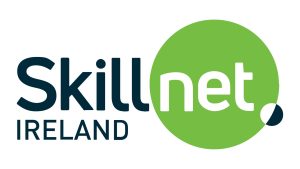Best practices
A model for industry engagement in the accreditation process
Users: Policymakers, Industry, SMEs | Theme: Accreditation and certification | Action: Policy/guideline | Beneficiaries: Training Providers (Private), Training Providers (Public), Policymakers, Industry, SMEs | Countries: Ireland.
Central to the Skillnet Ireland model are the Skillnet Business Networks: clusters of private sector businesses that collaborate based on a sector, or multiple sectors within a region, to provide upskilling and reskilling programmes to companies. With 70 Skillnet Business Networks nationwide, companies can find a network based on a particular sector, or within a region.
The business networks identify the skills needs impacting their region/sector and establish the requirements for the respective industry in relation to accreditation.
The challenge?
In the Irish context, the challenges nationally include:
- Fragmentation across sectors: Different industries and sectors often follow different accreditation frameworks (e.g., QQI in education, NSAI in standards, CORU in healthcare).
- Populating the talent pipeline and addressing skills shortages: There can be a disconnect between what training/education providers offer and what industry actually requires in accredited qualifications.
- SME Engagement and awareness: Small and medium-sized enterprises (SMEs) often lack awareness, resources, or understanding of accreditation processes.
- Funding and support structures: Accreditation processes can be costly and resource-intensive.
- Lack of real time labour market intelligence: Difficulty in gathering timely and localised data on evolving industry needs.
Our solution
The Skillnet Ireland Business Network Model is built on a national framework of business networks. These networks act as intermediaries between enterprises and training providers, fostering collaboration and ensuring that training programmes are demand-driven and aligned with both sectoral and national priorities.
Rather than relying solely on traditional education systems, the model empowers businesses—particularly SMEs—to identify critical skills gaps and co-develop training solutions that often lead to recognised accreditation. Business networks facilitate engagement across diverse sectors, reduce administrative burden, and support access to micro-credentials, recognition of prior learning (RPL), and formal qualifications. They also enable real-time intelligence gathering by maintaining close contact with employers, allowing for agile and targeted responses to emerging trends.
This collaborative and flexible structure helps address a range of systemic challenges: it supports alignment across fragmented accreditation systems, ensures training is relevant and recognised, simplifies SME participation, and makes accreditation more accessible and cost-effective through shared resources and financial supports.
Outcomes
1. Increased Alignment Between Industry and Accreditation
- Bridged the gap between industry needs and education offerings, resulting in more job-ready graduates and upskilled employees.
- Enabled the mainstreaming of micro-credentials and flexible learning pathways—recognised increasingly in formal systems.
2. Enhanced SME Participation in Accreditation and Upskilling
- Over 80% of Skillnet Ireland’s participating companies are SMEs, many of whom could struggle to access accredited training, without the Skillnet Ireland support systems and funding
3. Improved Responsiveness to Skills Shortages
- Real-time employer feedback through Skillnet Business Networks and rollout of new training (e.g., in AI, sustainability, cyber, medtech).
- Enabled the rapid scaling of talent pipelines in high-demand sectors (ICT, pharma, construction, green economy).
- Supported sectoral transformation by enabling existing workforces to transition into new, accredited roles (e.g. Offshore Wind Academy).
4. Reduced Regulatory and Administrative Burden
- Networks can act as a ‘navigator’ for regulatory complexity, streamlining access to compliance-related training and accreditation.
5. Increased Labour Market Intelligence and Policy Influence
- Networks support the production of sector-specific Talent and Skills Reports, influencing national policy and education programme development.
- Anticipated emerging skill gaps (e.g., cybersecurity, data governance, AI ethics), enabling pre-emptive programme development.
Key takeaways
- Build governance structures that put employers in the lead of programme design.
- Avoid ‘top-down’ training mandates – instead, co-design solutions with end users (businesses)
- Create collaborative, peer-based training networks around shared industry needs or regional challenges.
- Use intermediaries (Chambers Ireland, industry groups) to build bridges between businesses and training/accreditation providers.
- Embed accreditation partners early in programme development.
- Use modular, stackable credentials that can build toward formal qualifications over time.
- Build agile programme structures that can pivot quickly.
- Establish ongoing labour market sensing mechanisms through direct employer feedback.
- Design services and communications specifically for SMEs, with practical guidance, shared services, and peer learning.
- Use localised/regional outreach and relationships to engage hard-to-reach businesses.
- Leverage real-time data from industry networks to inform policy and programme direction.
- Consider training networks as a two-way channel: delivering skills on the ground and gathering intelligence for policymakers.

